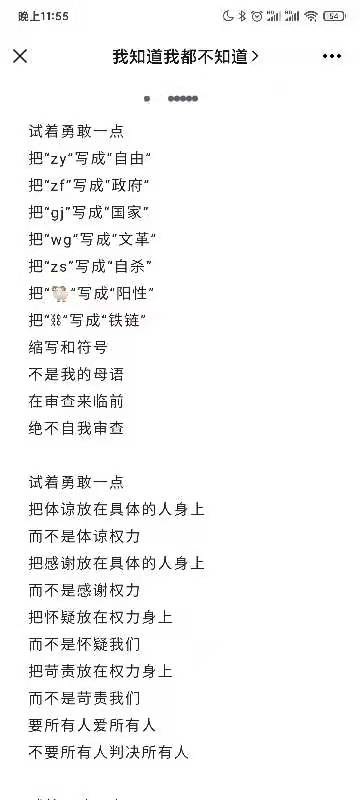Bo Xilai. Gu Kailai. Wang Lijun. These are the main characters in China’s ongoing soap opera As Chongqing Turns or “The Bo Drama (薄剧)” as it is known in Mandarin. Bo Xilai, of course is the disgraced former Party Secretary of Chongqing. Gu Kailai is his lawyer possibly crazy wife, who confessed to killing businessman, Niel Heywood and is now in prison after her death sentence was suspended. Wang Lijun was his head of security, who was in charge of Chongqing’s anti-mafia campaign and convicted of all sorts of corruption charges.
The main event trial of Bo ended yesterday. The best part? Bo Xilai was his own lawyer and so interjected throughout the prosecution’s presentation of its case. Below, a translation of the Abridged Bo Trial (审薄精简版) and yes, although fictionalized, the account rings so true. Also, I’ve tried to find online links to the Chinese text, but they seem to have been blocked:
Day 1
Prosecution: Your wife accepted money.
Defendant grunts.
Prosecution: The person who gave the money is known to you.
Defendant: Known but not really close.
Prosecution: Did you give favors to this person?
Defendant: Business is business (公事公办 literally: business done according to business principles).
Prosecution: Did you know your wife and son took people’s money?
Defendant: No.
Prosecution: She never mentioned it?
Defendant: People with taste like ours would get together and talk about money?
Prosecution: Xu Ming, Did you give the Party Secretary’s wife and son money?
Xu Ming: Yes.
Prosecution: Did he know?
Xu Ming: No.
Defendant (interrupts and says to prosecution): What did I tell you?
Prosecution: You mother-fu… Court recess!
Day 2
Prosecution: This is the evidence… (closing testimony of 10,000 characters).
Defendant: Have you closed your arguments?
Prosecution: Yes.
Defendant: Where’s the evidence?
Prosecution: Mother fucker, this isn’t evidence?!
Defendant: This is just testimony. This is what they said. Is there actual proof that I knew about the villa in France? That my son was playing around?
Prosecution: … Legal testimony that has been confirmed and supported!!! This is not enough?
Defendant: Is it? Enough? (Defendant laughs).
Day 3, morning
Prosecution to Wang: Wang, you tell us. Did he incite you to give money to his wife.
Wang: It seems that maybe…yes!
Defendant: Did I ever call my wife while you were there?
Prosecution: Yes.
Defendant: Did I ever try to find out if anyone else knew?
Wang: No.
Defendant: Mother fucker, am I a stupid cunt? Would I really not know who knew I was on the take? Who are you? Are we so intimate that I would call my wife while you were there and tell her to take a bribe?
Prosecution: If you hadn’t told your wife to take the money, how did it end up in her account? You definitely told her to do so! You said so!
Defendant: You think this investor is so poor? That the investor’s wife isn’t talented and rich? That we actually need your 5 million?
Prosecution: You definitely took bribes!
Judge: Prosecution, please remember your role…
Judge: Please continue.
Prosecution: Your wife already testified that you knew. And now you’re denying it!
Defendant: My wife… (sighs) I’ll admit to you all that… well, I stepped out of line once, so you understand that my wife took our son and went to England. what happened after that, how could I know? What’s more, my wife committed murder, if she had economic troubles, of course she’d be up shit creek. So her saying that I incited corruption is a normal response (很正常). We still care about each other and I don’t blame her for any of this…
Prosecution: What the fuck does that mean? Earlier you testified that your wife was mentally unstable. Now this?!
Defendant: I don’t mean anything by it. I’m just speaking the truth for the judge’s consideration.
Judge: (speechless)
Day 3, afternoon
Prosecution: We call General Wang Lijun.
Prosecution: General Wang, what do you have to say?
General Wang: I have so much to say! How could I not? How many years were we sworn buddies? I protected his son when he went abroad. When his wife committed murder, I was the first to tell him. I gave my life and bled for him. Him. Him. Him. And then he actually hit me on behalf of his wife! He slugged me! I bled! I’m broken hearted!
Prosecution: See! Do you see?
Defendant: You’re talking out your ass. Mother fucker, I thought you were a bosom buddy, and if my wife wanted to kill someone, you should have either stopped her or helped her. But you did nothing and let her royally fuck up. And then, you let the investigation go forward, only telling me two weeks later, “I’m a Police Chief and I have to investigate crime, your wife murdered someone. Leader, you must face reality… Sheesh… You tell me, do you deserve a beating or not?!
General Wang: I took responsibility for you!
Defendant: Your character is questionable. You’re two-faced! You directed your subordinates to go after her and then you come to me and pretend to be a loyal official!
General Wang: You! (10,000 characters deleted).
Defendant: I have nothing more to say to you. Judge, I have only one statement, everything he said is bullshit. I hit him and he hates me, so then he muddies the water. You do what you have to.
Judge: Court recessed.







